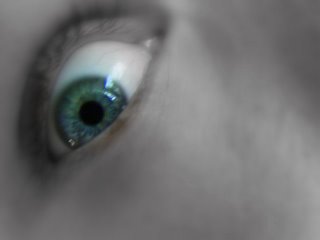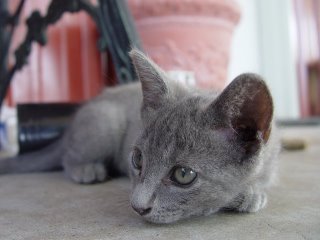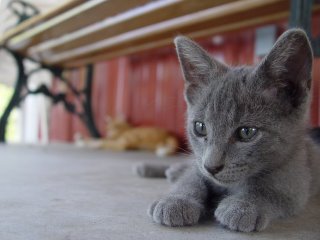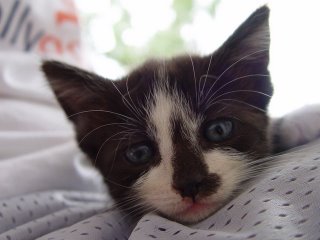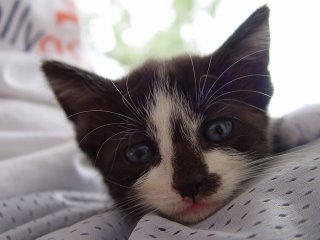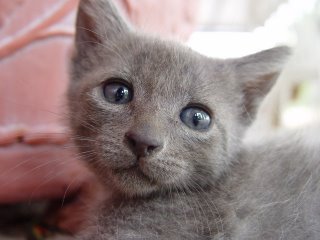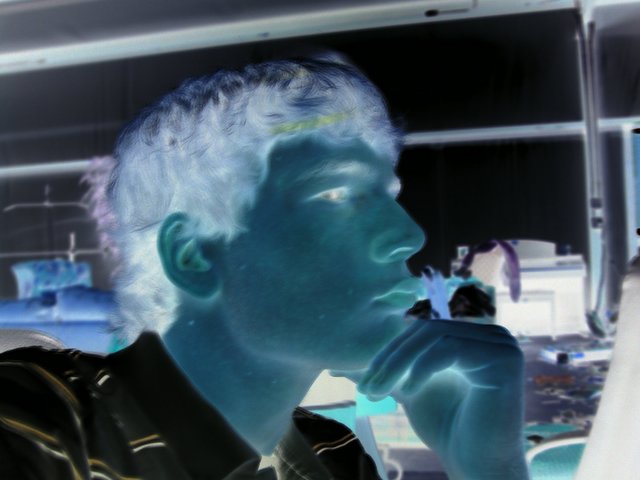Wednesday, June 28, 2006
The Heavenly Man
Heavenly Man is a wonderful book based on the life of brother Yun, a Chinese Christian. Told to John, brother Yun tells of his entire spiritual life, from beginning to present. His inspiring accounts of his time spent in prison and being tortured will rouse any Christian’s spiritual fervor.
Born into a poor family in the obscure Chinese province of Hunan, Yun was destined to being a farmer for the rest of his life- until God stepped in. In the midst of his father’s near fatal sickness, Yun’s mother remembered stories pasted down from her family of a God that heals. In desperation, Yun and his family called out to God and asked Him to heal their father. Their father is almost instantly healed, and Yun is hungry for more information about ‘This God that heals.’ His mother doesn’t remember anything else about God, but Yun learns that about the Bible, a ‘Holy Book.’ Miraculously, Yun receives the Bible from some anonymous travelers and instantly delves into the Scriptures. Memorizing one chapter of the Bible a day, Yun learns of Jesus dying on the cross to everyone. Yun instantly converts himself, his family, and most of his village to Christianity. After becoming somewhat familiar with the scriptures, Yun receives a vision to take the Gospel to other parts of China. With resounding success, he brings hundreds of people to their needs, asking God into their hearts. But the Chinese secret police, the Public Security Bureau, arrests Yun on charges of corrupting the peace. This time he is warned not to preach any more and is set free. But he starts to fulfill God’s purpose for him and continues to preach. He is continuously captured time and time again, but each time is either released or miraculously escapes. One time in particular, Yun is constantly beaten by the prison so much that he cannot get up. With blood dried all over his body, with most of his hair pulled out by the guards and with only thin, smelly and dirty rags to keep himself covered, The half-starved Christian Zealot goes to the Lord in one of the most serious signs of devotion to God - he fasts. For seventy-five days Yun fasts, spending all day every day earnestly praying to God. When his wife and mother are finally granted access to visit him, they don’t even recognize him. What they see is a frail man covered by thin, rags covered with dried urine and blood. He only has patches of hair on his head, and his ears are shriveled to the size of peas. Eating for the first time in two and a half months, Yun partakes in the Lord’s Supper with his wife and mother. Yun is eventually released a few weeks later, and instantly goes back to spreading the gospel. A few years later he is arrested again. But this time, he is sentenced to eight years in a prison camp eighty miles away from his family. Hauling human excretement, Yun calls this the lowest point in his life. For whenever his family would come to meet him, an iron-bared gate stood between them. All he could do was touch them and talk to them for the allotted time. What hurt him the most was his families financial situation. Whenever his family would come and visit him, his children were wearing shoes that had holes on the end so their fragile wouldn’t be cramped inside the shoe. Wearing tight clothes better suited for a toddler, his eight year old son told Yun stories of how the kids at school made fun of him for his father being in prison and for wearing clothes way to small. At this emotional part in his life, Yun had practically nothing; nothing except Jesus. He was released in two years for good conduct, and went back to preaching. After being captured again, Yun and some other important figures in the Chinese Church were held in the most tight and well guarded facility in all of China. Crippled from stun batons, Yun lay limply on the prison floor, praying to God. Then God told him to get up and walk out of the prison facility, and he did just that! The guards miraculously being oblivious to Yun, he simply trotted out of the prison. After this, he became one of the most wanted men in China. He and his fellow believers eventually decided that it would be better for him to leave China. As soon as he left China and went into Thailand, he was captured and sent to a Thai prison. Staying in a cramped cell with twenty other criminals, he tried to tell others about Jesus, but they couldn’t understand him. A lot of Yun’s fellow prisoners had been given life sentences, thus having no hope for the rest of their life. But another Chinese man arrived in the prison, thus almost instantaneously sparking a revival in the prison. Yun was eventually released, and then went to Germany, where he currently resides, always working for the Lord.
Certainly an instant classic for Christians, Heavenly man is a must for any Christian’s library. All Christian’s should take Brother Yun’s life as an example for a devout believer of God’s Word.
Monday, June 26, 2006
Supreme Court Won’t Hear “Choose Life” Appeal
The United States Supreme Court has denied an appeal from pro-abortion groups who want to ban states from offering “Choose Life” license plates. Pro-abortionists claimed it violated the first amendment because "those in favor of abortion did not have a similar forum." This is a big slap in the face for baby killers because not only did the Supreme Court say no, they would even listen! Louisiana and Tennessee are currently the only states that offer the plates, hopefully Texas offer some soon.
Sunday, June 18, 2006
North Korea threatens to ‘wipe out’ US
During a national meeting to mark Kim Jong-Il's 42 rule in North Korea, the government threatened to "mercilessly wipe out" the US Army if war were to break out between the two enemies. This comes a day after warning of a test launch of a long-range North Korean missile. Is North Korea just talking big, or are they actually stepping up to the plate? With a threat of a missile hitting the west coast, we have to take this seriously, and carefully think out anything that might lead us down the path of war. Unlike the current war in Iraq, a war against North Korea would be a united war; one that could help bring America together. I'm not at all saying we should go to war just for the heck of it, but we shouldn't shy away from conflict if it is thrown at us.
Thursday, June 08, 2006
My Research Paper on the Duality in Moby Dick
Moby-Dick, alternately called The Whale, was written by Herman Melville and published in 1851. Today hailed by many as the great American novel, it was ironically a failure when first published. It was not until the 1920s that it gained critical acclaim. Intended to be read as an allegory, Melville uses a technique uncharacteristic of the writing of his time, duality, where events and characters can be interpreted in a variety of ways. “Moby Dick is about different points of view” (Friedlander). Through the plot and characterization, Herman Melville richly blends duality with symbolism to create an ambiguity which allows the reader to come to his own conclusions.
Moby Dick begins with what is probably the best known first line in literature: “Call me Ishmael” (Melville, 1). Serving as the narrator throughout most of the novel, Ishmael explains the need to go to sea because he was feeling a “damp, drizzly November in [his] soul.” (Melville, 3). While staying at an inn on his way to the ocean, he befriends Queepeg, a Polynesian who specializes in harpooning. Vowing to stay together, they travel to Nantucket, the whaling capital of America, where they decide to go to sea on the Pequod, a whaling vessel scheduled to make a three-year trip to the Pacific Ocean and back. Appearing from his cabin a week after embarking, Captain Ahab shows himself in front of his crew for the first time. A disgruntled, aged man, he wobbles around the deck on a wooden leg, constantly staring out onto the open sea. Ishmael soon learns that during a previous whaling voyage, Ahab encountered a great white whale. When Ahab attempted to harpoon it, the whale attacked the ship and in the process, took off one of Ahab’s legs. The infamous white whale that Ahab encountered was known by whalers as Moby Dick.
Now a few years after the incident, Ahab has an all-consuming hate for the white whale. Using conventional whaling as an excuse, Ahab hunts Moby Dick with a bloodthirsty, insane zeal. After a few weeks on board the Pequod, Ahab forces the crew of the Pequod to swear an oath to help him hunt the white whale. While still killing any other whales that they come upon, the whole crew knows that the ship’s objective is to find and destroy Moby Dick. Even though encountering numerous signs telling the Pequod that their hunt is hopeless and they should turn back, Ahab stubbornly presses on. After entering the Pacific Ocean and voyaging near Japan, they encounter the Rachel, a ship that saw Moby Dick the day before. More zealous than ever, Captain Ahab knows he is close to his goal. They indeed find Moby Dick soon and begin what becomes a three day chase. The third day Moby Dick rams the Pequod, sinking it and killing all of its crew except Ishmael, who resurfaces and clings to a coffin until he is rescued by the Rachel, the same ship that the Pequod saw earlier.
Although Ishmael plays a relatively small role in the novel after beginning of the voyage, he narrates the entire novel. In chapter 14, he uses the vast amounts of spare time on the ship to get to know the characters. Starbuck, the first mate, is a wise and sensible Quaker who looks upon whaling with all seriousness. In direct contrast to Starbuck is Stubb, the second mate, an easy-going sailor-boy who overlooks the danger of whaling and sees it as some sort of game. Flask, the third mate, is a selfish whaler who views whaling as a great challenge. This direct contrast in the Melville’s characterization sets the stage for his duality.
Painted colorfully by Melville throughout the novel, Moby Dick is viewed in different ways by different people. (Sloan). To Ahab, Moby Dick was a “’pasteboard mask’ worn by the supreme inscrutable evil” (Friedlander). When Ahab describes Moby Dick, he says: “I see in him outrageous strength, with an inscrutable malice sinewing it. That inscrutable thing is chiefly what I hate; and be the White Whale agent, or be the White Whale principal, I will wreak that hate upon him” (Melville, 256). Clearly, Ahab saw Moby Dick as the ultimate evil. In contrast, many other people saw Moby Dick in a different light. To the crew of the Pequod in general, “the legendary White Whale is a concept onto which they can displace their anxieties about their dangerous and often very frightening jobs” (Themes, Motifs, and Symbols). Starbuck, using his down to earth sense, sees Moby Dick as just another big whale, nothing to spend a whole voyage hunting individually. When Ahab first openly announces the goal of his voyage, Starbuck objects, stating that Moby Dick is simply a “dumb brute…that simply smote thee from blindest instinct” (Melville, 252). Starbuck insists on hunting whales for whale oil, the usual objective of whaling voyages. It is interesting to note that, while most of them disagreed with Ahab’s monomania with Moby Dick, the crew of the Pequod decided to disregard Starbuck’s attempt to bring the Pequod back to her original objective. Flask, like Starbuck, views the White Whale as just another whale; but unlike Starbuck, he would like to hunt Moby Dick for the challenge and glory.
Another viewpoint that contrasts with that of Captain Ahab’s is that of the Samuel Enderby’s captain. While on the open sea, the Pequod encounters the Samuel Enderby, a British whaling ship. Captain Ahab abruptly asks them if they have seen Moby Dick. The captain of the Samuel Enderby replies and shows Ahab his ivory arm which he says was taken off by the violence of the White Whale only a few months before. The captain then tells of how the ship encountered Moby Dick again, but shied away from attacking, fearing another near death encounter. The captain of the Samuel Enderby sees Moby Dick as a great prize, but is rational in his approach to hunting it. Although he suffered the same related injury from Moby Dick, he was realistic in his response. Although he was angry at Moby Dick, he did not have an insane contempt. In conclusion, while Captain Ahab was the only one who viewed the White Whale as evil, many others had different opinions of the hunting of Moby Dick.
Another excellent example of duality used by Herman Melville is the white color of Moby Dick and what it symbolizes. Dedicating an entire chapter to this subject, Ishmael discusses the meaning the color white. He sets forth a number possibilities, allowing the reader to decide which one is the most reasonable. He says that white can symbolize beauty, strength, spirited leadership, and purity. But contrary to common opinion, Ishmael offers a valid argument for an opposite meaning of white as well. White can be found in the “white wastes of prairies covered with snow and ice, or the white foaming sea hurled upon the rocky coasts by a frightful storm (The Whiteness of the Whale). This is obviously the view that Captain Ahab has of white. However, the reader can determine the meaning of the color white by his own experiences, perception, and biases (The Whiteness of the Whale). Moby Dick’s color could represent “good or evil, glory or damnation, all colors or the visible absence of color” (Moby Dick). “Whiteness conveys both a lack of meaning and an unreadable excess of meaning that confounds individuals.” (Themes, Motifs, and Symbols). This example of multiplicity is perhaps the most exciting because Ishmael directly lays out the possible choices and lets us decide for our own what we can make of it.
An ambiguous case of duality similar to that of the color of Moby Dick is when Ishmael arrives at the Spouter Inn. He encounters a mysterious painting on one of the walls. Dark and dirty, it is utterly impossible to make out its exact meaning. Ishmael lays forth several interpretations for the reader to decide on, although later Ishmael determines that it is a large whale impaling a ship. This view however is not “particularly realistic and offers more confusion than clarity” (Chapters 1-9). This symbol offers an ambiguous view of the way we might perceive things, very much like the color white.
Perhaps the least ambiguous example of duality is exemplified in Queepeg’s Coffin. At one point in the book, Queepeg comes down with a dreadful sickness that threatens to take his life. On the verge of death, Queepeg’s asks the Pequod’s carpenter to make him a coffin. Once it is made, Queepeg decides to go ahead and lay in it. But before he dies, he “just recalled a little duty ashore, which he was leaving undone; and therefore he had changed his mind about dying” (Melville, 458). When he completely recovers, he uses the coffin to keep his belongings in, symbolizing “an emblem of his will to live” (Themes, Motifs, and Symbols). Then when the Pequod’s life buoy fails to save an overboard sailor’s life, it is replaced with Queepeg’s coffin. But the ultimate dichotomy of the coffin is when the Pequod sinks, “it is a symbol of hope and even rebirth when it springs from the vortex of the sunken Pequod to provide Ishmael with a means of staying afloat until the Rachel rescues him” (Moby Dick). This dichotomy is a favorite of many because it deals with the universal theme of life and death.
Melville’s uses duality again in Chapter 99, titled The Doubloon. Previously in the book, Captain Ahab had offered a golden doubloon (coin) to the first person who spotted Moby Dick. He hung it upon a wall for all to see. Inscribed on the doubloon is a picture of three mountain peaks, one topped by a flame, one by a tower, and one by a rooster. Above the mountains, the sky is divided into a segment of the zodiac, with the sun entering the constellation Libra” (Chapters 93-101) In this chapter some of the key figures take turns interpreting what these pictures on the coin mean. Starbuck, the Quaker, sees a “vale of death, in which God, represented by the sun, offers a beacon of hope but no certainty” (Chapters 93-101); Stubb, the easy-going second mate, claims that the interpretation “is most left to the imagination of the interpreter; he himself seeing the zodiac for the first time, arrives on the conclusion that it a symbol of the twelve stages of life; Queepeg relates the inscribing on it to some of his tattoos; Fedallah, a Persian fire-worshipper, sees fire; an old seaman sees it as a bad omen; Pip, a young cabin boy, sees it as the ship’s navel, holding the ship together at the middle; the selfish third mate Flask sees the 960 cigars that he could buy with it; and Ahab states that each person sees only themselves in it as a result of our selfishness. But Pip makes perhaps the most true remark, saying, “I look, you look, he looks; we look, ye look, they look” (Melville, 521). This multiplicity symbolizes all the different ways people look at something, based on their religion, personality, and agenda.
Another example of this multiplicity is in Chapter 119, titled The Candles. In the midst of a typhoon, St. Elmo’s fire occurs upon three of the Pequod’s masts. As the whole crew watches in awe, Ahab claims that the white flames are good omens and signs of his own power. Starbuck sees them as a “warning against the continuing quest for Moby Dick” (Chapters 115-125). Then when a flame appears on Captain Ahab’s harpoon, Starbuck interprets it as a sign that God opposes Ahab. Ahab then abruptly claims there is no such sign and quickly blows out the flame to “blow out the last fear” (Melville, 636). Captain Ahab’s and Starbuck’s different ideals come into conflict again as they interpret the St. Elmo’s fire differently.
A direct dichotomy is shown early in the book when Ishmael goes to two different churches. The first one he encounters is full of African-Americans weeping and wailing while the preacher preaches on the blackness of darkness, “suggesting that evil is impenetrable and cannot be understood by human beings” (Chapters 1-9). Then the next day, Ishmael goes to a church where the sermon’s theme is that God gives human beings the power to apprehend truth, a direct dichotomy to the first sermon’s theme that man’s power to understand truth is limited.
Another dichotomy is suggested towards the end of the novel when Captain Ahab seems to show a sign of kindness by taking Pip under his wing, the reason most likely being that they are both alienated from the majority of the crew because of their insanity. They offer a distinct difference because Pip views himself as just a “little black boy in white America and as one tiny human in the vast ocean. Ahab, on the other hand, feels himself to have been singled out by, rather than lost in, the vastness of the universe” (DreamVirus). A very similar contrast in characters also involves Pip. Earlier in the book, Pip jumps ship during a whale chase, and the crew threatens to leave him out on the ocean. This throws him into a state of delirious insanity, in which he stays for the rest of the novel. Ishmael, in contrast, when he becomes a temporary castaway like Pip after the Pequod sinks, controls himself and doesn’t go mad. Perhaps this can be explained because throughout the whole book Pip has been giving his own opinions of everything, while Ishmael tends to look at the opinions equally; so when he becomes a castaway, he isn’t polarized from his “ideal” like Pip is. This offers an excellent diagnostic of the consequences for settling on one point or dogma.
All of these symbols, among many others, use duality to enhance their meaning. “As in many ship novels, the Pequod is a microcosm of the human race, each member having a point of view that isolates him from others and from a full view of the world. Only Ishmael, who has always tried to see the other person’s point of view, survives” (Friedlander). Melville’s use of duality is contrary to the writing of his time. The prominent romantic and transcendentalist writers usually created a symbol which implied only a singular interpretation, unlike Melville whose symbols allowed multiple interpretations. Therefore, Moby Dick failed to impress critics until the 1920s with the emergence of postmodernists, who highly regarded literature which allowed duality in symbols and ambiguity to the reader.
Moby Dick begins with what is probably the best known first line in literature: “Call me Ishmael” (Melville, 1). Serving as the narrator throughout most of the novel, Ishmael explains the need to go to sea because he was feeling a “damp, drizzly November in [his] soul.” (Melville, 3). While staying at an inn on his way to the ocean, he befriends Queepeg, a Polynesian who specializes in harpooning. Vowing to stay together, they travel to Nantucket, the whaling capital of America, where they decide to go to sea on the Pequod, a whaling vessel scheduled to make a three-year trip to the Pacific Ocean and back. Appearing from his cabin a week after embarking, Captain Ahab shows himself in front of his crew for the first time. A disgruntled, aged man, he wobbles around the deck on a wooden leg, constantly staring out onto the open sea. Ishmael soon learns that during a previous whaling voyage, Ahab encountered a great white whale. When Ahab attempted to harpoon it, the whale attacked the ship and in the process, took off one of Ahab’s legs. The infamous white whale that Ahab encountered was known by whalers as Moby Dick.
Now a few years after the incident, Ahab has an all-consuming hate for the white whale. Using conventional whaling as an excuse, Ahab hunts Moby Dick with a bloodthirsty, insane zeal. After a few weeks on board the Pequod, Ahab forces the crew of the Pequod to swear an oath to help him hunt the white whale. While still killing any other whales that they come upon, the whole crew knows that the ship’s objective is to find and destroy Moby Dick. Even though encountering numerous signs telling the Pequod that their hunt is hopeless and they should turn back, Ahab stubbornly presses on. After entering the Pacific Ocean and voyaging near Japan, they encounter the Rachel, a ship that saw Moby Dick the day before. More zealous than ever, Captain Ahab knows he is close to his goal. They indeed find Moby Dick soon and begin what becomes a three day chase. The third day Moby Dick rams the Pequod, sinking it and killing all of its crew except Ishmael, who resurfaces and clings to a coffin until he is rescued by the Rachel, the same ship that the Pequod saw earlier.
Although Ishmael plays a relatively small role in the novel after beginning of the voyage, he narrates the entire novel. In chapter 14, he uses the vast amounts of spare time on the ship to get to know the characters. Starbuck, the first mate, is a wise and sensible Quaker who looks upon whaling with all seriousness. In direct contrast to Starbuck is Stubb, the second mate, an easy-going sailor-boy who overlooks the danger of whaling and sees it as some sort of game. Flask, the third mate, is a selfish whaler who views whaling as a great challenge. This direct contrast in the Melville’s characterization sets the stage for his duality.
Painted colorfully by Melville throughout the novel, Moby Dick is viewed in different ways by different people. (Sloan). To Ahab, Moby Dick was a “’pasteboard mask’ worn by the supreme inscrutable evil” (Friedlander). When Ahab describes Moby Dick, he says: “I see in him outrageous strength, with an inscrutable malice sinewing it. That inscrutable thing is chiefly what I hate; and be the White Whale agent, or be the White Whale principal, I will wreak that hate upon him” (Melville, 256). Clearly, Ahab saw Moby Dick as the ultimate evil. In contrast, many other people saw Moby Dick in a different light. To the crew of the Pequod in general, “the legendary White Whale is a concept onto which they can displace their anxieties about their dangerous and often very frightening jobs” (Themes, Motifs, and Symbols). Starbuck, using his down to earth sense, sees Moby Dick as just another big whale, nothing to spend a whole voyage hunting individually. When Ahab first openly announces the goal of his voyage, Starbuck objects, stating that Moby Dick is simply a “dumb brute…that simply smote thee from blindest instinct” (Melville, 252). Starbuck insists on hunting whales for whale oil, the usual objective of whaling voyages. It is interesting to note that, while most of them disagreed with Ahab’s monomania with Moby Dick, the crew of the Pequod decided to disregard Starbuck’s attempt to bring the Pequod back to her original objective. Flask, like Starbuck, views the White Whale as just another whale; but unlike Starbuck, he would like to hunt Moby Dick for the challenge and glory.
Another viewpoint that contrasts with that of Captain Ahab’s is that of the Samuel Enderby’s captain. While on the open sea, the Pequod encounters the Samuel Enderby, a British whaling ship. Captain Ahab abruptly asks them if they have seen Moby Dick. The captain of the Samuel Enderby replies and shows Ahab his ivory arm which he says was taken off by the violence of the White Whale only a few months before. The captain then tells of how the ship encountered Moby Dick again, but shied away from attacking, fearing another near death encounter. The captain of the Samuel Enderby sees Moby Dick as a great prize, but is rational in his approach to hunting it. Although he suffered the same related injury from Moby Dick, he was realistic in his response. Although he was angry at Moby Dick, he did not have an insane contempt. In conclusion, while Captain Ahab was the only one who viewed the White Whale as evil, many others had different opinions of the hunting of Moby Dick.
Another excellent example of duality used by Herman Melville is the white color of Moby Dick and what it symbolizes. Dedicating an entire chapter to this subject, Ishmael discusses the meaning the color white. He sets forth a number possibilities, allowing the reader to decide which one is the most reasonable. He says that white can symbolize beauty, strength, spirited leadership, and purity. But contrary to common opinion, Ishmael offers a valid argument for an opposite meaning of white as well. White can be found in the “white wastes of prairies covered with snow and ice, or the white foaming sea hurled upon the rocky coasts by a frightful storm (The Whiteness of the Whale). This is obviously the view that Captain Ahab has of white. However, the reader can determine the meaning of the color white by his own experiences, perception, and biases (The Whiteness of the Whale). Moby Dick’s color could represent “good or evil, glory or damnation, all colors or the visible absence of color” (Moby Dick). “Whiteness conveys both a lack of meaning and an unreadable excess of meaning that confounds individuals.” (Themes, Motifs, and Symbols). This example of multiplicity is perhaps the most exciting because Ishmael directly lays out the possible choices and lets us decide for our own what we can make of it.
An ambiguous case of duality similar to that of the color of Moby Dick is when Ishmael arrives at the Spouter Inn. He encounters a mysterious painting on one of the walls. Dark and dirty, it is utterly impossible to make out its exact meaning. Ishmael lays forth several interpretations for the reader to decide on, although later Ishmael determines that it is a large whale impaling a ship. This view however is not “particularly realistic and offers more confusion than clarity” (Chapters 1-9). This symbol offers an ambiguous view of the way we might perceive things, very much like the color white.
Perhaps the least ambiguous example of duality is exemplified in Queepeg’s Coffin. At one point in the book, Queepeg comes down with a dreadful sickness that threatens to take his life. On the verge of death, Queepeg’s asks the Pequod’s carpenter to make him a coffin. Once it is made, Queepeg decides to go ahead and lay in it. But before he dies, he “just recalled a little duty ashore, which he was leaving undone; and therefore he had changed his mind about dying” (Melville, 458). When he completely recovers, he uses the coffin to keep his belongings in, symbolizing “an emblem of his will to live” (Themes, Motifs, and Symbols). Then when the Pequod’s life buoy fails to save an overboard sailor’s life, it is replaced with Queepeg’s coffin. But the ultimate dichotomy of the coffin is when the Pequod sinks, “it is a symbol of hope and even rebirth when it springs from the vortex of the sunken Pequod to provide Ishmael with a means of staying afloat until the Rachel rescues him” (Moby Dick). This dichotomy is a favorite of many because it deals with the universal theme of life and death.
Melville’s uses duality again in Chapter 99, titled The Doubloon. Previously in the book, Captain Ahab had offered a golden doubloon (coin) to the first person who spotted Moby Dick. He hung it upon a wall for all to see. Inscribed on the doubloon is a picture of three mountain peaks, one topped by a flame, one by a tower, and one by a rooster. Above the mountains, the sky is divided into a segment of the zodiac, with the sun entering the constellation Libra” (Chapters 93-101) In this chapter some of the key figures take turns interpreting what these pictures on the coin mean. Starbuck, the Quaker, sees a “vale of death, in which God, represented by the sun, offers a beacon of hope but no certainty” (Chapters 93-101); Stubb, the easy-going second mate, claims that the interpretation “is most left to the imagination of the interpreter; he himself seeing the zodiac for the first time, arrives on the conclusion that it a symbol of the twelve stages of life; Queepeg relates the inscribing on it to some of his tattoos; Fedallah, a Persian fire-worshipper, sees fire; an old seaman sees it as a bad omen; Pip, a young cabin boy, sees it as the ship’s navel, holding the ship together at the middle; the selfish third mate Flask sees the 960 cigars that he could buy with it; and Ahab states that each person sees only themselves in it as a result of our selfishness. But Pip makes perhaps the most true remark, saying, “I look, you look, he looks; we look, ye look, they look” (Melville, 521). This multiplicity symbolizes all the different ways people look at something, based on their religion, personality, and agenda.
Another example of this multiplicity is in Chapter 119, titled The Candles. In the midst of a typhoon, St. Elmo’s fire occurs upon three of the Pequod’s masts. As the whole crew watches in awe, Ahab claims that the white flames are good omens and signs of his own power. Starbuck sees them as a “warning against the continuing quest for Moby Dick” (Chapters 115-125). Then when a flame appears on Captain Ahab’s harpoon, Starbuck interprets it as a sign that God opposes Ahab. Ahab then abruptly claims there is no such sign and quickly blows out the flame to “blow out the last fear” (Melville, 636). Captain Ahab’s and Starbuck’s different ideals come into conflict again as they interpret the St. Elmo’s fire differently.
A direct dichotomy is shown early in the book when Ishmael goes to two different churches. The first one he encounters is full of African-Americans weeping and wailing while the preacher preaches on the blackness of darkness, “suggesting that evil is impenetrable and cannot be understood by human beings” (Chapters 1-9). Then the next day, Ishmael goes to a church where the sermon’s theme is that God gives human beings the power to apprehend truth, a direct dichotomy to the first sermon’s theme that man’s power to understand truth is limited.
Another dichotomy is suggested towards the end of the novel when Captain Ahab seems to show a sign of kindness by taking Pip under his wing, the reason most likely being that they are both alienated from the majority of the crew because of their insanity. They offer a distinct difference because Pip views himself as just a “little black boy in white America and as one tiny human in the vast ocean. Ahab, on the other hand, feels himself to have been singled out by, rather than lost in, the vastness of the universe” (DreamVirus). A very similar contrast in characters also involves Pip. Earlier in the book, Pip jumps ship during a whale chase, and the crew threatens to leave him out on the ocean. This throws him into a state of delirious insanity, in which he stays for the rest of the novel. Ishmael, in contrast, when he becomes a temporary castaway like Pip after the Pequod sinks, controls himself and doesn’t go mad. Perhaps this can be explained because throughout the whole book Pip has been giving his own opinions of everything, while Ishmael tends to look at the opinions equally; so when he becomes a castaway, he isn’t polarized from his “ideal” like Pip is. This offers an excellent diagnostic of the consequences for settling on one point or dogma.
All of these symbols, among many others, use duality to enhance their meaning. “As in many ship novels, the Pequod is a microcosm of the human race, each member having a point of view that isolates him from others and from a full view of the world. Only Ishmael, who has always tried to see the other person’s point of view, survives” (Friedlander). Melville’s use of duality is contrary to the writing of his time. The prominent romantic and transcendentalist writers usually created a symbol which implied only a singular interpretation, unlike Melville whose symbols allowed multiple interpretations. Therefore, Moby Dick failed to impress critics until the 1920s with the emergence of postmodernists, who highly regarded literature which allowed duality in symbols and ambiguity to the reader.
Sunday, June 04, 2006
Microsoft's iPod Killer
So, Microsoft finally pushes away all the rumors of an mp3 player to counter the iPod by announcing a joint deal with Toshiba, JVC, and NTT-Domoco. Microsoft will push software, while the rest will manufacture it. Bill Gates was tired of tossing and turning in bed having nightmares of Steve Jobs dancing around the iPod, so what does he do? What everybody knew he would do – make his own. Will this ever work? Probably not. Apple gained the lead so early in the contest, its nearly impossible to imagine Microsoft, or anyone else catching up. Microsoft and its co-conspirators will have to give something amazing to beat Apple. Here’s a list of things that the player will have to have to compete with Apple: 1) A friendly user-interface. Apple has mastered this art while un-technical people shy away from anything that says Microsoft on it. 2) It will have to be ‘hip.’ The iPod is still the ‘in’ thing to have. The Microsoft player will have to have a sleek-design, be thin, and just look overall cool. If Microsoft was smart, I think they would try to lure some major Apple employees over to help with this one…Microsoft just can’t seem to do this job on their own. 3) Microsoft must block iTunes from working on Vista. Yes this is a long shot that probably will never happen. And of course some court battles will ensue. And sure there will be some pirated versions of iTunes for Vista. But if any legal form of iTunes is not compatible on Vista, it will be impossible to legally use your iPod with your PC. Microsoft could now finally use the advantage of practically owning the operating system world. Windows Media Player would become the new iTunes. The iPod would return again to its underground roots with the Apple fanatics. And that’s exactly what Bill Gates wants.
